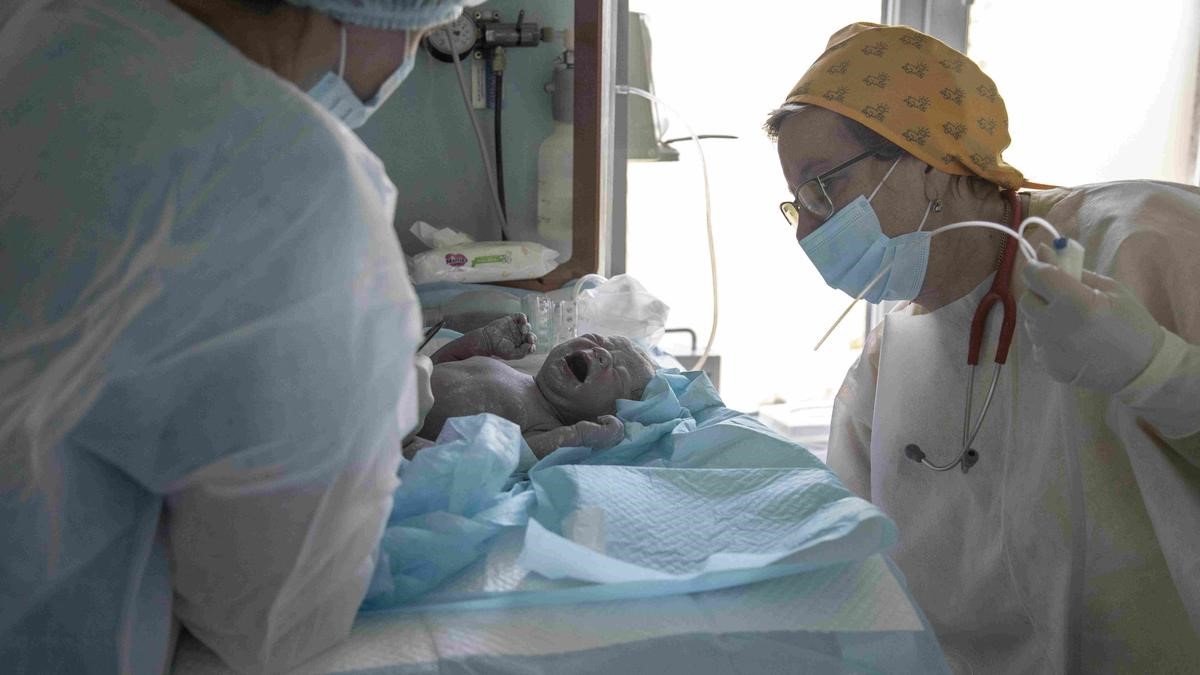Falling birth rates and the issue of abortions in Russia
Fewer than 100,000 children were born in 2022, which has not happened since 1940. The Ministry of Health now wants to introduce controls on abortion drugs. Moscow has one of the most liberal abortion legislations in the world. The Orthodox Church is pushing to change it.
Moscow (AsiaNews) - Russia's Minister of Health, Mikhail Muraško, who began his medical career as an obstetrician and gynaecologist, has been appealing to Russian women to bear more children.
He described the tendency of women to seek self-sufficiency and earn a living on their own, before family planning as a 'reprehensible practice'.
Muraško also added that very strict controls on medical termination of pregnancy preparations would be introduced as part of measures to safeguard the safety of citizens.
The ministry's concerns are also taken up by the Moscow Duma, where deputies of the 'New Men' party have drawn up a draft to be handed over to the government, whereby female students who give birth during their studies would be granted a special subsidy exempting them from school and university fees.
All these initiatives are aimed at tackling the demographic crisis, a problem that has been discussed in Russia for more than 20 years now, but which is becoming increasingly dramatic as a result of the pandemic and the ongoing war.
In recent years, government and state institutions have been competing to find new proposals to encourage fertility, from the exclusion of abortions from public healthcare to subsidies of all kinds for those who abandon their decision to terminate a pregnancy.
The control on abortifacient drugs has triggered heated reactions on social networks, giving rise to the most diverse interpretations, and there is even talk in the press of a 'ban on contraception'.
In reality, as gynaecology expert Olja Krumkač explains in an interview with Novaja Gazeta, the ministerial statements do not speak of contraceptives, but only of abortifacient means that are not found in pharmacies, but are assigned by the doctor after a specialist examination. Even now, these preparations are very strictly controlled in the larger cities, especially in Moscow and St. Petersburg.
The purpose of the controls is mainly to obtain more statistical data on medical terminations of pregnancy, an operation that is rather complicated due to the cross-referencing of data between public and private clinics, given that in Russia the practice of abortion is very widespread and rooted in the popular mentality, as a centuries-old Soviet legacy.
Incidentally, abortion drugs are also used in obstetric practice for other purposes, and in any case private facilities are rather reluctant to disclose their patients' data. The same ministerial indications specify that the procedure of medical termination of pregnancy 'does not involve harmful influences on the reproductive function following treatment'.
Russian legislation on abortion remains to this day one of the most liberal in the world: women can have an abortion up to the twelfth week, without any justification or procedure, and in the following weeks it is permitted according to social parameters, such as the consequence of rape or the risk to the woman's health and life.
Now attempts are being made to introduce restrictions, but always 'without infringing on women's rights and freedoms'. Those pushing for a ban on abortion are the servants of the cult of the various religions, especially the Orthodox Church, but also politicians and MPs, and exponents of the more radical nationalist groups.
Patriarch Kirill of Moscow often insists on a ban on abortions in private clinics, where 'medicine merchants get fat on women's suffering', and in public health care he also proposes that the request for an abortion should include a 'consultation with a priest or psychologist'.
The Orthodox Church also proposes that consent to abortion should not be limited to the woman, but should also include the father's will, even if it is not specified how much this is linked to the marriage bond, an even more labile and undefined subject in Russia.
From many quarters the 'child-free ideology' is condemned, even though doctors and sociologists object that historically the abortion ban has never decreased the number of abortions, in any country in the world.
All the appeals by Putin, Kirill, and other public figures to increase fertility, promising aid and subsidies from the state and various institutions, over the past two decades have yielded no results.
In 2022, Russia set a negative birth rate record, with less than 100,000 children born, as has not happened since 1940, because 'women no longer want to have children before the age of 30', it is repeated in many quarters, and the war certainly does not entice young people.
07/02/2019 17:28







.png)










